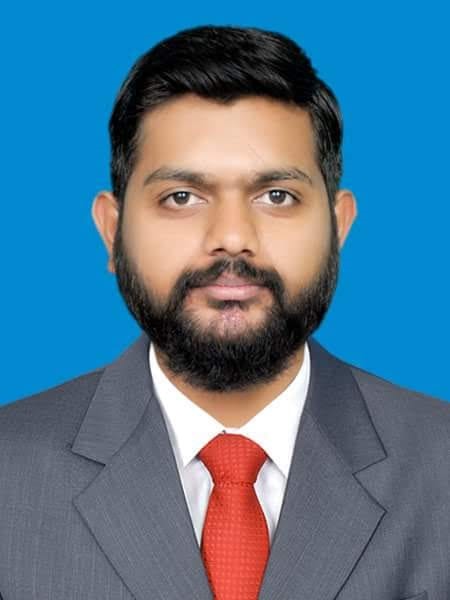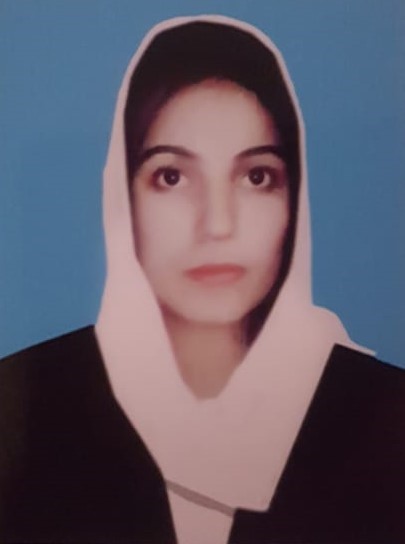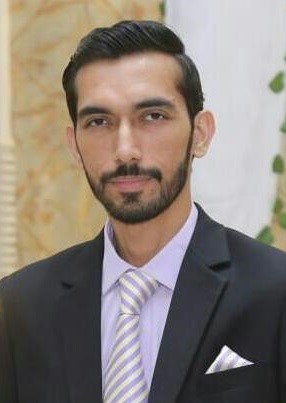Program introductions
Are you interested in a career in finance or management? Look no further than our MS Economics and Finance program! With a focus on modern techniques and contemporary issues, our program will equip you with the ability to apply advanced microeconomics, macroeconomics, and monetary economics in both the public and private sectors.
Our curriculum is designed to provide you with highly sought-after quantitative and theoretical skills, enabling you to critically examine economic theories, actions, and policies. And, unlike other programs, Jinnah University provides the opportunity for you to refine your practical skill set through a thesis, working alongside highly-qualified teachers who will help you apply your learning of economics and finance to real-world scenarios.
Don’t miss out on this chance to enhance your career prospects and become a highly qualified and well-trained graduate in finance and management!
Career Prospects
A degree in MS Economics and Finance will unlock the following career options for you:
- Financial Analyst
- Banker
- Wealth Manager
- Stockbroker
- Accountant
- International Trade Specialist
- Political Risk Analyst
- Consultant
Admission Requirements
- Sixteen years of schooling or four-year of relevant education after intermediate with minimum 50% marks or minimum CGPA 2.0/4.0.
- MAJU Admission Test or HEC Approved Test
- Compulsory requirements (30 Cr. Hrs.)
Program Educational Objectives (PEOs)
| PEO-1 | To provide in depth knowledge of economic theories related to economic growth, investment, trade, finance, and consumption. |
| PEO-2 | To provide awareness about current economic and financial conditions and challenges of Pakistan and the World. |
| PEO-3 | To update students’ knowledge related to latest practices in economics, trade banking and finance and other financial institutions. |
| PEO-4 | To improve students’ skills of recent research software and scientific research techniques. |
Program learning outcomes (PLOs)
| PEO-1 | Employ important theories of Economics and Finance and challenges facing economy of Pakistan and the World. |
| PEO-2 | Apply the knowledge of economics, finance, trade, financial econometrics in their professional fields at their workplace. |
| PEO-3 | Analyze complex macroeconomics situation of the country and the world by applying macroeconomic theories and advance econometrics techniques, identify causes and present solutions. |
| PEO-4 | Investigate complex challenges and issues of financial institutions and develop proposals to counter these issues. |
| PEO-5 | Evaluate the factors causing severe poverty, unemployment, and inflation and how these factors can be reduced. |
| PEO-6 | Identify an issue in the fields of economics or finance and carry out research and proposed recommendations to policy makers. |
Degree Requirements
Student enroll in MS(EF) Program must complete following:
| Area | Cr. Hrs. |
| Core Courses | 12 |
| Elective Courses-Economics | 06 |
| Elective Courses-Finance | 06 |
| Thesis | 06 |
- General requirements (24 Cr. Hrs.)
- Foundation courses (27 Cr. Hrs.)
- Discipline-specific courses
- Core courses (total Cr. Hrs.)
| Masters in Economics and Finance MS(EF) | ||
| Compulsory Courses | ||
| Course Code | Course Title | Credit Hours |
| EC5000 | Advanced Microeconomics (Core) | 3 |
| EC5410 | Econometrics & Research Methods (Research) | 3 |
| FN5320 | Theory & Practice of Finance (Core) | 3 |
| EC5010 | Advanced Macroeconomics (Core) | 3 |
-
- Elective courses (total Cr. Hrs.)
List of Elective Courses
(A) ELECTIVE COURSES (Economics 09 CR. HRS)
| Course Title | Course Code | Cr. Hrs. |
| Advanced Mathematical Economics | EC 6100 | 3 |
| Advanced Econometrics | EC 5030 | 3 |
| Advanced Development Economics | EC 6320 | 3 |
| Advanced Monetary Economics | EC 6330 | 3 |
| Islamic Finance | EC 6340 | 3 |
| Issues in Pakistan Economy | EC 6310 | 3 |
| Labor Economics | EC 6350 | 3 |
| Public Finance | EC 6360 | 3 |
(B) ELECTIVE COURSES (Finance 09 CR. HRS)
| Course Title | Course Code | Cr. Hrs. |
| International Finance | FN 5310 | 3 |
| Financial Econometrics | FN 6520 | 3 |
| Advanced Financial Derivatives | FN6530 | 3 |
| Advanced Port Folio Management | FN6500 | 3 |
| Contemporary Issues in Banking and Finance | FN6510 | 3 |
(D) Research Thesis (Only for thesis students)
| Course Title | Course Code | Cr. Hrs. |
| Thesis Phase-I | EC6400 | 3 |
| Thesis Phase -II | EC 6410 | 3 |
(E) Deficiency Courses
| Course Title | Course Code | Cr. Hrs. |
| Introduction to Business Finance | FN 2300 | 3 |
| Basic Econometrics | EC 4110 | 3 |
| Business Economics | EC 1020 | 3 |
Specialization Courses (Total Cr. Hrs.)
Curriculum/Plan Of Study
| Offered Courses | ||||||
| S.No. | Semester No. | Course Code | Course Title | Credit Hours | Course Type | Pre-Requisite |
| 1 | 1 | EC5000 | Advanced Microeconomics | 3 | Core | |
| 2 | 1 | EC5410 | Econometrics & Research Methods | 3 | Core | |
| 3 | 1 | FN5320 | Theory and Practice of Finance | 3 | Core | |
| 4 | 2 | EC5010 | Advanced Macroeconomics | 3 | Core | EC5000 |
| 5 | 2 | EC 6310 | Current Issues in Pakistan Economy | 3 | Core | |
| 6 | 2 | FN6510 | Contemporary Issues in Banking & Finance | 3 | Elective | |
| 7 | 3 | FN5310 | International Finance | 3 | Elective | |
| 8 | 3 | EC 5030 | Advanced Econometrics | 3 | Elective | |
| 9 | 3 | EC6400 | Thesis Phase-I | 3 | Thesis/Project | |
| 10 | 4 | EC6410 | Thesis Phase-II | 3 | Thesis/Project | |
-
- Elective/specialization courses list
- Eligibility criteria
- Sixteen years of schooling or four-year of relevant education after intermediate with minimum 50% marks or minimum CGPA 2.0/4.0.

“Stay in MAJU an exciting experience of my life where I learnt a lot. Most striking element was the attitude of the teachers who were very candid, cooperative and supportive. That’s why, I enjoyed attending the classes and faced no hurdle in learning and understanding new things.”
Muhammad Mubashir
Assistant director, State bank of Pakistan


“The environment of MAJU made me feel like home, very pleasant secure, and encouraging. It was really a learning environment. You may be in the class, canteen, library, exhibition or seminar, everywhere you learn new knowledge. “
Khushboo Shaikh
Research assistant at National Institute of Cardiovascular Diseases


The decision to pursue my MS(EF) degree at MAJU has been one of the best choices I’ve made. The program not only deepened my understanding of economics and finance but also honed my critical thinking and analytical skills. The continuous support from faculty and the collaborative learning environment fostered a sense of camaraderie among students, making the educational journey truly enriching.”
Kazim Jafri
Deputy Director
Sindh Bureau of Statistics
Planning & Development Department, Government of Sindh


“I can confidently say that MAJU’s has exceeded my expectations. The faculty’s expertise and their commitment to students’ success are truly commendable. The program’s emphasis on experiential learning through internships and industry collaborations gave me invaluable exposure and helped me build a strong professional network.”
Muhammad Khalid
Senior Auditor
Accountant General Sindh


